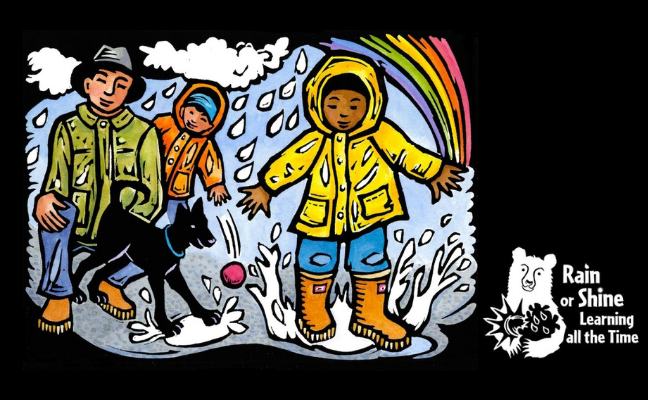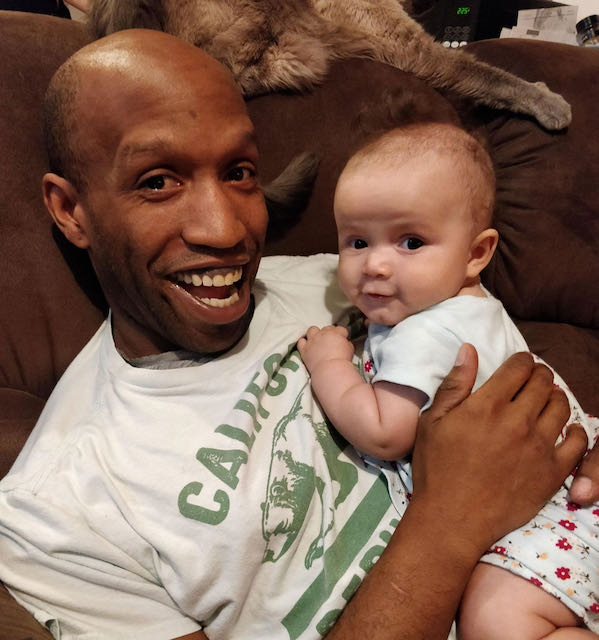Learning Together in Early Childhood Education
Working with young children – whether as an early learning educator, caregiver, or parent – is one of the most important jobs there is. But kids don’t come with manuals. That’s why STEPS partners offer a variety of learning opportunities for all of the people who work with young children. From home-visiting programs like Parents as Teachers, to parenting courses like Circle of Security, to professional learning courses like the Child Development Academy, there’s something for everyone.
Here are just a few ways STEPS partners are providing learning opportunities for caretaking adults:
Improving Quality Care Through the Child Development Academy
This year the Association of Education for Young Children (AEYC), Tlingit and Haida Central Council, SERRC, UAS, and the City and Borough of Juneau partnered together to offer a Child Development Academy for the first time.
The goal was to increase the number of providers offering quality childcare. Participants completed a 120-hour training over eight week and an internship placement at a licensed child care center. The early childhood educators were paid for their training time, which is uncommon in the child care industry. Participants who completed the program received a national certificate, as well as six university credits, and a scholarship for an additional three-credit course following the academy. By July, 30 child care teachers had earned an education award, up from 21 last year. In addition, 17 new programs were validated by Learn and Grow, Alaska’s Quality Recognition program, with three additional programs ready to be validated this summer (compared to 1 program validated in January).
To enroll in the next 12 week program which supports candidates through a blended learning environment that includes direct coaching and instruction, online training, and practical experience in early childhood classrooms contact Blue Shibler for more information.
Wooch.een Preschool Working Together for Culturally Responsive Professional Development
About ten years ago Sitka recognized that there were far more low-income families who qualified for Head Start than the program was able to serve. The Sitka School District and the Central Council of Tlingit Haida Indian Tribes of Alaska Head Start Office combined their programs so that they could serve 40 students, up from 11 a decade ago. The Sitka Tribe of Alaska brought culturally responsive professional development, materials, curriculum, and role models to the reimagined collaborative preschool program aptly titled “Wooch.een Yei Jigaxtoonei” (“We are Working Together”). The partners are now hoping to share culturally based materials and training with other early childhood educators in the community.
Collaborating between Head Start and pre-K classrooms
Juneau School District has a mix of Head Start and school district pre-K classrooms in its buildings. This year Tlingit & Haida and the district opted to collaborate on professional development opportunities, starting with a training on Trauma Engaged practices for pre-K and Head Start teachers. The two organizations are partnering on professional development opportunities each quarter.
Accelerating language learning
The brains of young children are made for learning language, which is why teaching ‘Liingit and Xaad K’il at an early age is a priority for many Tribes and school districts. Hydaburg has led the way with a school district sponsored preschool immersion program. Head Start students in Hoonah have the chance to extend their day with ‘Lingit language learning in the afternoon. And in Juneau, Tlingit & Haida has offered the Haa Yóo X̱ʼatángi Kúdi Tlingit language immersion nest. These programs rely on community support and the generous sharing of knowledge by elders and language speakers. Regular gatherings of STEPS partners working on language revitalization have also helped create a space for teachers to share ideas and resources.

Learning all the Time
Young children are learning all the time. We know that parents and caregivers can do an even better job at fostering those neural connections when they have a chance to learn about child development best practices. Unfortunately, parents and caregivers don’t always have time to take a class or even read a book. This year STEPS partners made it even easier for families to access supportive tips and best practices by attaching them to fun images crafted by Ketchikan artist Evon Zerbtz and breaking down short easy-to-digest messages for posters, newsletters, and social media postings.
If you’re interested in tapping into this free resource, contact Emily Ferry.
Zooming in to Parents as Teachers

The in-home visiting program Parents As Teachers (PAT) has long been recognized as an effective model for sharing helpful child development information when and where families need it: in their home. PAT is designed to support families and their babies ages 0 to 3 through monthly or bi-monthly one on one visits with a Parent Educator, fun activities for your baby, and information on child development and the program is free. The pandemic helped open this free service to more families, allowing Parent educators to Zoom in from Juneau to the homes of families in Yakutat and Hoonah.
This free home visiting program is available in person or virtually for those in Juneau, and virtually Hoonah, Angoon, Yakutat, and Hydaburg. Encourage families to enroll or find out more by emailing Emily Thompson.
Additional resources to support parents’ learning
Baby Raven Reads: This award-winning literacy program which features monthly gatherings, books, and activities for Alaska Native families with children up to age 5. Learn more about Baby Raven Reads in your community or contact coordinator Tess Olympia.
Parenting Skills Classes: There are a variety of multi week courses available to Southeast Alaskan parents both in person and virtually. Find out more about the classes that are offered or contact Nikki Love to schedule a class.
Infant Learning Programs: Are you wondering if your child’s development is on track? REACH’s Infant Learning Program can help you understand what is typical at a certain stage and can offer support if needed. For kids from birth to age three, check out the Infant Learning Program or contact Kathleen Hansen to learn more.
